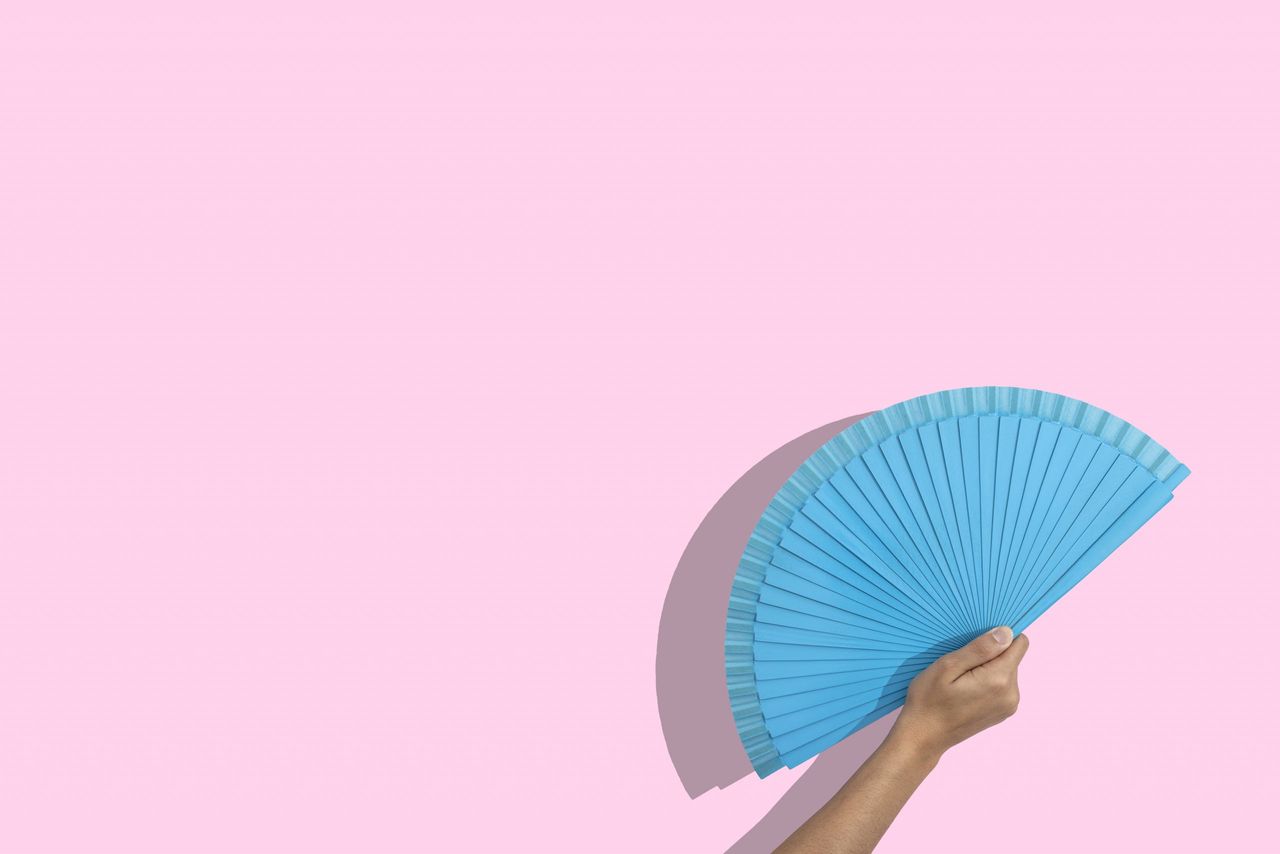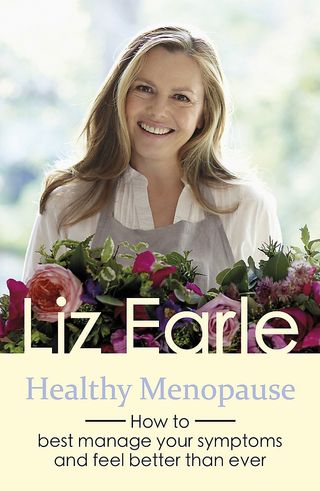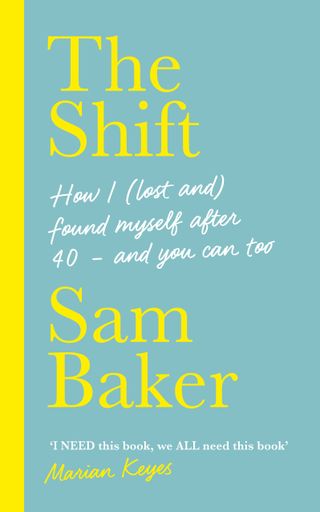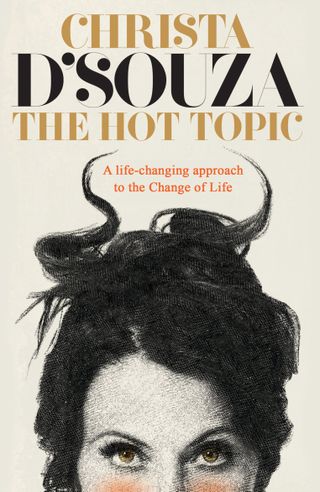The menopause has being added to the school curriculum - but there’s still plenty more work to be done
Attitudes are changing - and it's about time.

There has been a big change in the curriculum for secondary school pupils in the UK - the introduction of learning about the menopause.
While midlifers would never have learned in school about what to expect when the biological process came around, the generation of tomorrow will be more equipped.
The change in schools marks the beginning of a new era, with attitudes towards the menopause changing. What used to be thought of as frightening or even shameful - something to keep schtum - is now being recognised more for what it is; a natural, and, dare we say it, potentially positive, phase of a woman’s life. But there’s still more work to be done around menopause education - and it starts with ourselves.
Make Menopause Matter: the story behind the change in the curriculum
Diane Danzebrink, a psychotherapist and founder of the#MakeMenopauseMattercampaign, found herself in an unexpected “very dark place” following a hysterectomy putting her in an immediate medical menopause. Due to a lack of information in our society, she was left feeling helpless and with little support from her GP.
She did not want anyone else to struggle with their symptoms as she did and so Diane was instrumental in leading the government to add menopause to secondary school sex and relationship lessons in the UK. The stigma around this normal physiological event is huge, given that it is part and parcel of being a woman, which is why Diane needed to take action.
Why we need to be more open about the menopause
Dr Deborah Lee, fromDr Fox Pharmacy, says teaching the young about topics like the menopause is great as young people “do not shy away from serious or difficult topics. They often thrive on them.” By educating girls and boys from a younger age it will likely help end the stigma for women.
“So far it's been children who have been excluded [from the conversation]”, says Deborah, but once girls and boys understand more it will likely mean parents are less embarrassed to speak up when they’re suffering.
Sign up for the woman&home newsletter
Sign up to our free daily email for the latest royal and entertainment news, interesting opinion, expert advice on styling and beauty trends, and no-nonsense guides to the health and wellness questions you want answered.
The British Medical Association surveyedaround 2,000 female doctors about their challenges of working through the menopause, more than a third of respondents said they wanted to make changes to their working lives because of the menopause but couldn’t. And almost half didn’t feel able to talk to their managers about the challenges, which can include hot flushes, aching joints, disturbed sleep, foggy brain and mood swings. If doctors cannot even discuss it, or devices such as menopause magnets, how will their patients feel?
MORE:Menopause weight gain: why it happens and what you can do about it
The BMA says simple adjustments in the workplace can be made: more breaks, water, and cooling down areas. Two years ago,a government studyrevealed that59% of women with menopause symptoms lied to their boss about the reason for their absence. If there is more of an understanding among the workplace, future generations are less likely to suffer too.
But sadly being a woman often means your medical symptoms are much more likely to be overlooked and not taken seriously. Why? Because shockingly women’s health conditions are rarely studied in clinical trials. This makes treatment difficult to manoeuvre and diagnoses harder to come by. There has been proof that doctors have a tendency to diagnose women’s physical complaints as mental illness, rooting back to a history of hysteria. How is menopause meant to be taken seriously, if medical professionals continually deem women as hysteric? It needs a collective effort of speaking out and standing up to ensure the medical gap gets narrower.
How we can educate ourselves and others about the menopause
There is a lot of mystery and misinformation around the menopause, but by starting to educate ourselves about it, we are on the right path to a more inclusive workplace and life for the future of women. The average age of menopause is 45 to 55, which is often the peak of a woman’s career too, it can feel daunting that due to lack of education your career could be negatively impacted. The more it is discussed the better. In the last year or so the conversation has opened up and literature surrounding the menopause is becoming more and more popular.
Sam Baker, a former magazine editor, was unexpectedly hit by the menopause and knows that if she knew more about what to expect then she wouldn’t have landed in such an awful place. This shock is what can lead women to spiral. She believes we should celebrate and look forward to menopause, it can make you feel invisible and it can be daunting to accept you may need help to deal with your symptoms.
MORE:The best tactics for dealing with menopause hot flushes
But getting through the other side is an achievement women should be proud of, it’s “a bridge to cross, not an abyss to fall down” says Sam; she believes it brings you wisdom and experience. Sam’s latest book, The Shift discusses and celebrates this, by reading and recommending books such as these to friends, partners and colleagues you’re aiding in creating a sense of normalcy around the menopause which is a key driving point in making the subject less taboo.
Recommended reading on the menopause

Healthy Menopause by Liz Earle
From the skincare expert, Liz Earle comes a book on natural therapies to help manage your symptoms.

The Shift by Sam Baker
Sharing her experiences of life post 40, Sam Baker teaches us how to celebrate the menopause and how to take hold of your life.

The Hot Topic by Christa D’Souza
Former magazine editor Christa speaks to menopause experts in the US to find out what really happens during this time. She also speaks to other women to show how different everyone’s experience can be.
Rachel is a freelance contributor to woman&home, covering news as well as books, lifestyle and travel. Her byline has also appeared in The Independent, The Financial Times, ELLE Magazine, VICE, Glamour Magazine and others. She loves nothing more than talking with people to share their stories. When she is not writing you will definitely find her nose in a book or magazine, or perhaps training for the next half marathon, practicing yoga or eating in London's best restaurants.
-
 Sienna Miller's best hair and makeup moments from across the years
Sienna Miller's best hair and makeup moments from across the yearsWe revisit some of her top beauty looks from the archives...
By Lucy Abbersteen Published
-
 Katie Holmes broke an unspoken fashion rule in tights and mules - her shoes are available for less than £100 on Amazon
Katie Holmes broke an unspoken fashion rule in tights and mules - her shoes are available for less than £100 on AmazonThe statement gold kitten heels are a surprisingly versatile spring staple
By Charlie Elizabeth Culverhouse Published